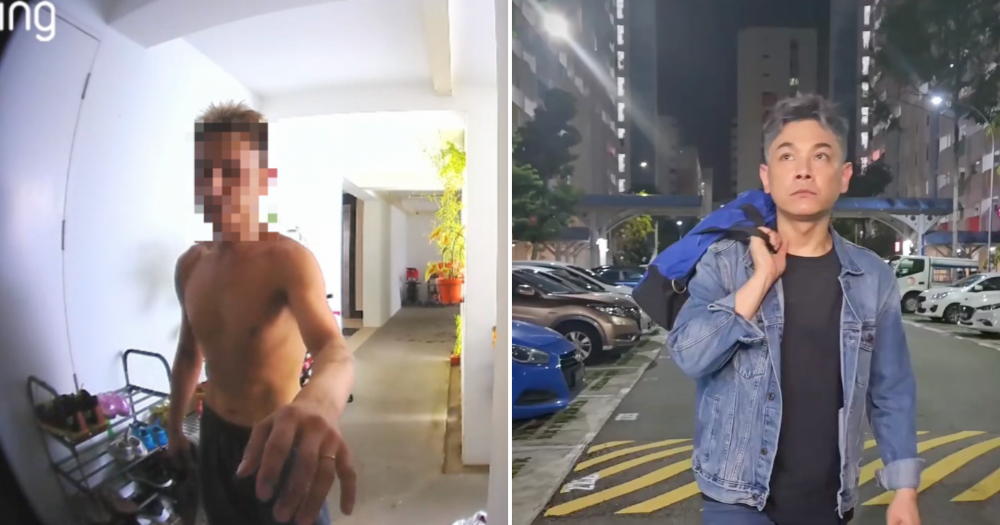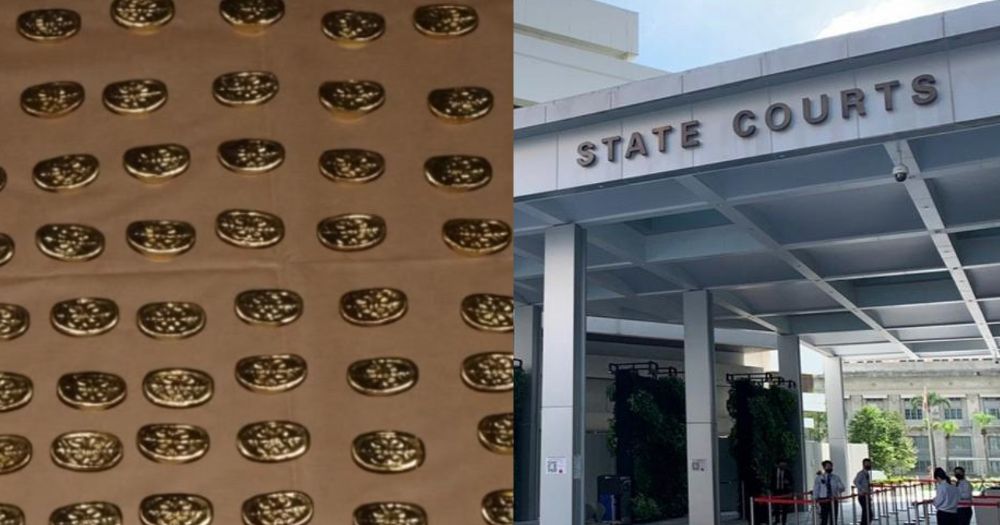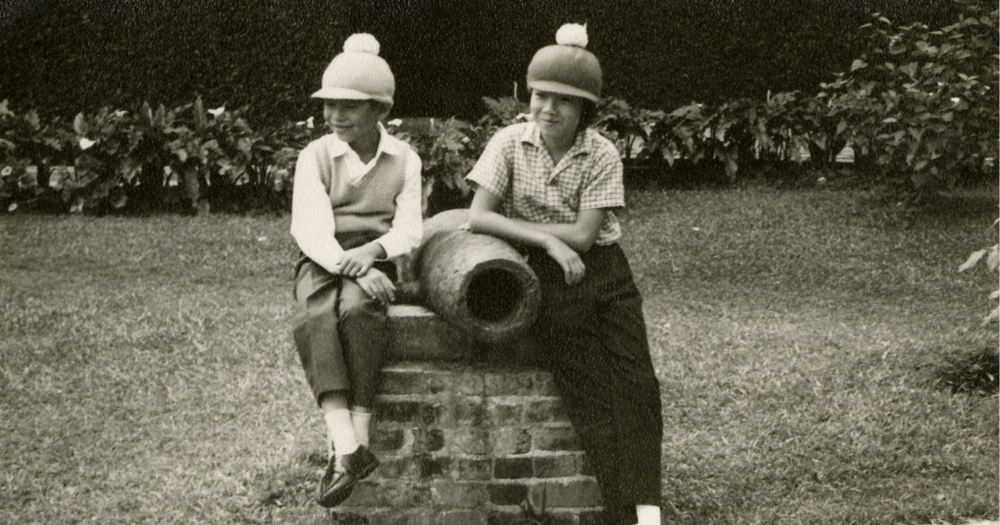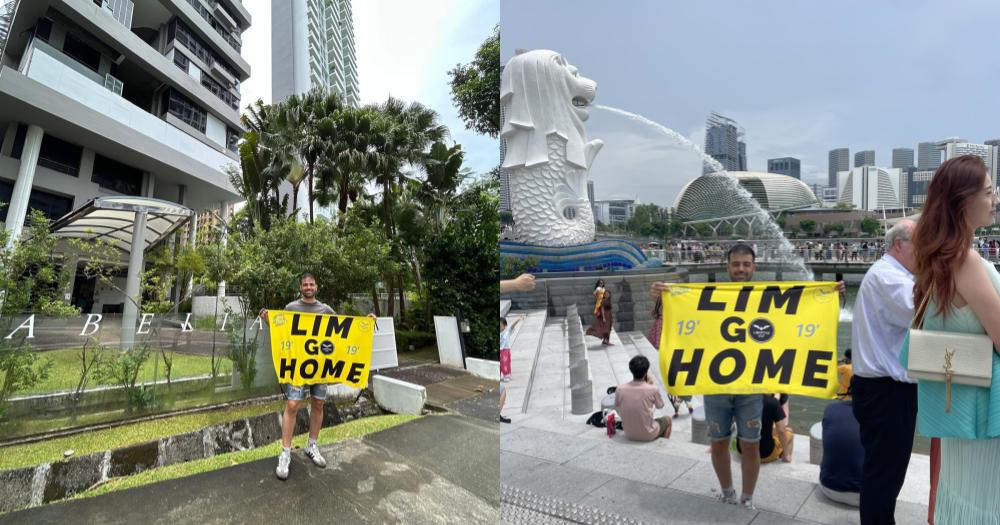S’porean man, 69, gets jail for buying Philippines passport to travel, claimed it was to escape ‘corrupt’ China officials
He paid more than S$325,000 for it.

A Singaporean man paid US$250,000 (S$325,565) for a Philippines passport and used it 46 times to pass through Singapore immigration checkpoints.
Goh Chin Soon, 69, claimed that he obtained the passport out of "necessity" to leave China as "corrupt" Chinese officials were after his land and properties, and Chinese authorities had seized his passport without returning it to him.
The passport bore Goh's face but had the particulars of a Filipino man, "Boris Jacinto Ngo", born in 1967. Goh was born in 1955.
Goh was arrested on Sep. 7, 2012 at Changi Airport before he could board a flight bound for Hong Kong.
Prior to that, he had entered Singapore 23 times and exited 22 times with the Philippines passport.
Goh's case first went to trial in 2016, but went through a lengthy process that included a retrial.
The prosecution disputed Goh's claims that he believed the passport was legitimate, and charged him with trying to circumvent travel restrictions due to his bankruptcy status.
'Fell prey to corrupt Chinese officials'
Goh said in his defence that he needed to get the passport in early 2011 to travel out of China in order to avoid serious harm to himself.
He claimed he was a successful investor in Qingdao, China who had "fallen prey" to "corrupt" Chinese officials that had their eyes on his land and properties.
To get their hands on his property, Goh claimed the Chinese officials falsely accused him of possessing ammunition, which got him arrested and detained.
He said that when authorities arrested him, they seized his passport and identity card and did not return them even after his release.
According to Goh, rumours were circulating at the time that he had reported a high-ranking corrupt official in Qingdao, which placed his life in danger as the official's subordinates wanted to apprehend him.
He said he "had no choice" but to flee to Xiamen.
Goh claimed he visited the Singapore embassy in Xiamen in September or October 2009 to ask for their assistance and get a new passport.
Goh said he made "four or five trips a month" to enquire on the status of his case, but the embassy did not get back to him.
Philippines passport made for 'investment'
Goh also raised the defence that the Philippines passport was acquired as an "investment passport".
According to Goh, in 2010, he was told by one Cai You Zhang that he knew Taiwanese government officials who could help Goh get back his seized properties from the Chinese authorities.
Cai then offered to help Goh get him a Philippines investment passport so Goh could travel to Taiwan and meet him.
Cai arranged for another man, Huang Yueh Chao, to assist Goh in the application process.
Huang told Goh that Cai managed to find an agent who could help with the passport application, and that Goh would have to buy over a tyre shop in the Philippines for US$250,000 (S$325,565) as part of the arrangement.
Goh agreed to pay a deposit of US$100,000 (S$130,226), and passed it to Huang in Xiamen along with his personal and family particulars.
Huang allegedly returned to Xiamen in June 2010 to tell Goh that his surname “Goh” was spelt “Ngo” in the Philippines.
Goh also told Huang that he wanted to change his name to Boris as everyone, including the Chinese authorities, knew him as Ricky.
As for "Jacinto", Goh said Huang told him that the Philippines was a matrilineal society and therefore his mother’s name, Shen Mei Feng, translated to Jacinto in a Filipino language.
Huang eventually handed Goh the passport in March 2011.
When Goh saw it, he noticed that the nationality stated was Filipino and also that the place and date of birth were wrong.
He asked Huang about it, who told him it would "require six months" to correct these details.
Instead of waiting, Goh used it to fly to Taiwan. He later used it to fly back to Singapore when his mother passed away.
Goh claimed that he believed the passport was legitimate as Huang had told him that he went to "every department in the Philippines" to get it done, and because he used it to travel to many countries without issue.
He was trying to travel undetected as a bankrupt man: Prosecution
The prosecution noted that Goh had applied for a Singapore passport at the Singapore embassy in Xiamen on Apr. 28, 2010, but was not issued one due to unresolved bankruptcy issues that affected the processing of the application.
"He knew about his bankruptcy issues but made no effort to resolve them and instead paid USD250,000 (S$325,565) for the Philippines passport," the prosecution said.
As such, the prosecution charged Goh with knowingly using the misleading passport on 46 occasions from 2011 to travel in and out of Singapore and circumvent the travel restrictions due to his bankruptcy status.
As Goh was an undischarged bankrupt at the time, he would have needed the permission of the Official Assignee (OA) to travel, under Singapore law.
The prosecution opined that Goh knew the Philippines passport was a misleading document, based on the "highly suspicious circumstances" around how he procured it, and that fact that its particulars did not represent him.
"The accused never once stepped foot in the Philippines or a Philippines embassy to apply for the passport. He did not collect the passport personally from any official government authorities, neither did he authorise anyone to apply for the Philippines passport on his behalf." the prosecutor said.
Additionally, there was already an exit seal from the Philippines and a Taiwanese visa on the passport when Goh received it, the prosecution highlighted.
Goh later managed to apply for a Singapore passport and collected it on Feb. 17, 2012, but continued using the Philippines passport.
The prosecution made the case that Goh did so as he did not have the OA's approval to travel and needed to avoid detection by the Singapore authorities.
The prosecution sought 18 months to 21 months and six weeks' jail for Goh.
He was sentenced to 15 months and six weeks' jail on Aug. 28, CNA and The Straits Times reported.
Goh intends to appeal against his conviction and sentence.
His bail was set at S$200,000.
Top image from Canva

MORE STORIES





















